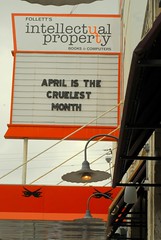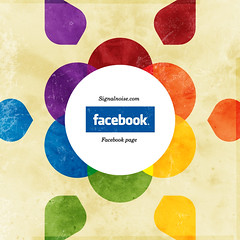
Yesterday, I did some research to find useful websites on
IPR which is an acronym for “Intellectual Property Rights”. But what is intellectual property? To answer this question I tried to search for material that could help me in understanding the issue. Then I find own-it whose latest news, dated 14th April 2009, was titled “What is intellectual property?” Experts of this Website define IP as a way of classifying “most of the world’s creative output and content (including possibly yours)”. As they exemplify, products, inventions are protected by patents and design rights; literary, artistic and musical work are protected by copyright; and brand names, words, sounds and even smells are protected by trade marks. Moreover, by saying “all your mental and creative outputs can be transformed into tangible ‘commodities’ so that you license, sell, trade, divide or retain rights to those commodities.”, it seems that they want to catch the attention of any readers who wish to create or invent something new (for quotes see :
http://www.own-it.org/knowledge/what-is-intellectual-property).
However in the same webpage, what interested me mostly was a short article titled “Harry Potter downloads spell trouble for e-book site”. This article explained how the three famous writers Ken Follett, Aravind Adiga and JK Rowling have publicly criticized the site
Scribd.com for hosting copyright material. Now, Scribd.com is also one of the bookmarks I have in my delicious account and from he article I’ve learnt that even though Scribd’s policy, like You Tube’s, provides for the removal of copyright infringing material, it does not actively monitor hosted content. Anyway, I hope there will be a solution to the problem because, as it is said in the article, Scribd’s policy is to remove copyright material when notified of it, but also, in my opinion, remains to be one of the best alternatives for students of having an idea on books they really need to buy.
Another important thing I’ve learnt so far is to protect my files using
Flickr.com that you can find at
http://www.flickr.com/creativecommons/by-nc-nd-2.0/Once, in one of my postsblog I downloaded an image from my computer. Then I clicked on this image with the right button of the mouse and what came out was the window with different options including “Save image”. Therefore, I realized that even unknown persons, who happened to visit my blog, could take my image and use it without carrying about my “creative intellectual property”. As suggested on Blogging English webpage of our mentor Sarah, one possible solution would be to protect files by registering myself on Flickr.com, a website that adopted Creative Common License, that is to say I can share files and protect them by deciding what others can do with my work. Here by uploading an image, the file would become public and therefore visible to anyone, but at least given a minimum of protection guarantee. Let’s see if it’ll be worth of ;-).
See you soon!
Arianna
 E-tivity 8
E-tivity 8

 Yesterday, I did some research to find useful websites on IPR which is an acronym for “Intellectual Property Rights”. But what is intellectual property? To answer this question I tried to search for material that could help me in understanding the issue. Then I find own-it whose latest news, dated 14th April 2009, was titled “What is intellectual property?” Experts of this Website define IP as a way of classifying “most of the world’s creative output and content (including possibly yours)”. As they exemplify, products, inventions are protected by patents and design rights; literary, artistic and musical work are protected by copyright; and brand names, words, sounds and even smells are protected by trade marks. Moreover, by saying “all your mental and creative outputs can be transformed into tangible ‘commodities’ so that you license, sell, trade, divide or retain rights to those commodities.”, it seems that they want to catch the attention of any readers who wish to create or invent something new (for quotes see :
Yesterday, I did some research to find useful websites on IPR which is an acronym for “Intellectual Property Rights”. But what is intellectual property? To answer this question I tried to search for material that could help me in understanding the issue. Then I find own-it whose latest news, dated 14th April 2009, was titled “What is intellectual property?” Experts of this Website define IP as a way of classifying “most of the world’s creative output and content (including possibly yours)”. As they exemplify, products, inventions are protected by patents and design rights; literary, artistic and musical work are protected by copyright; and brand names, words, sounds and even smells are protected by trade marks. Moreover, by saying “all your mental and creative outputs can be transformed into tangible ‘commodities’ so that you license, sell, trade, divide or retain rights to those commodities.”, it seems that they want to catch the attention of any readers who wish to create or invent something new (for quotes see :



